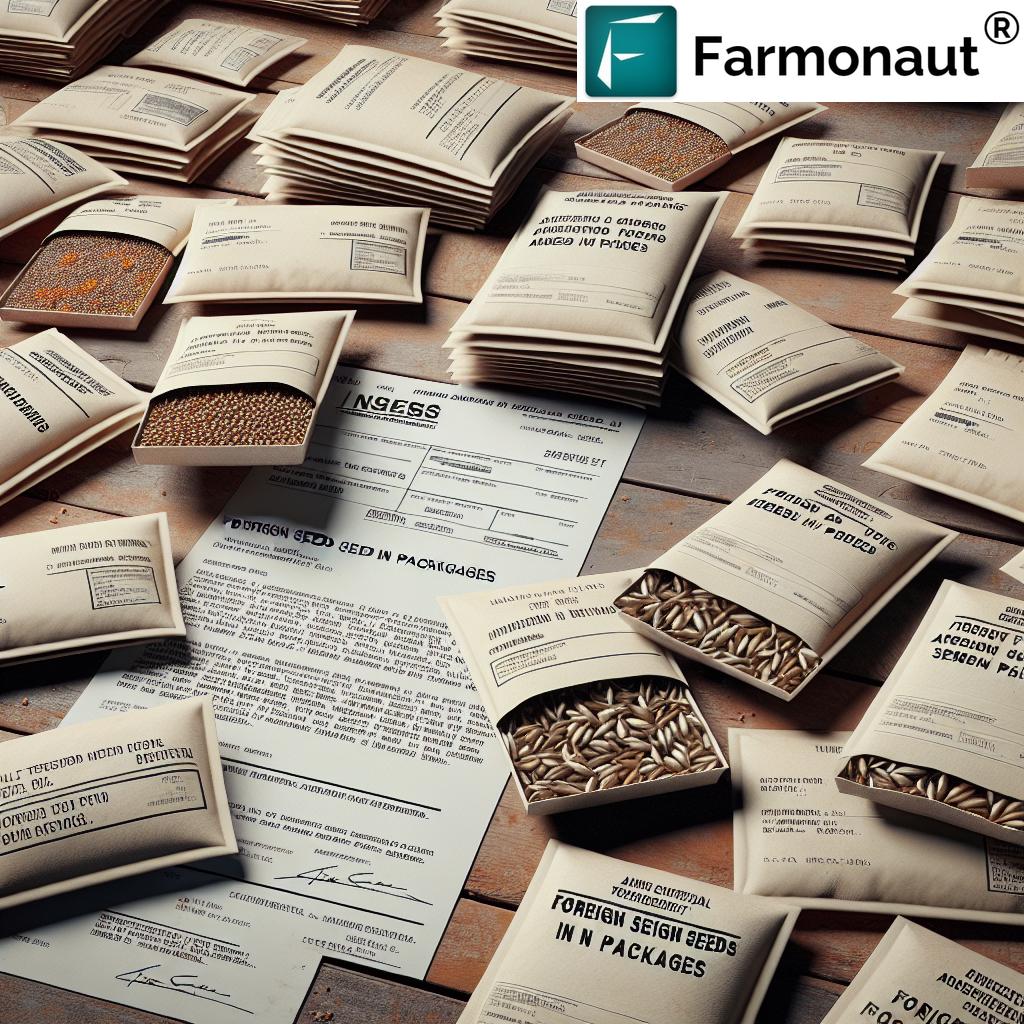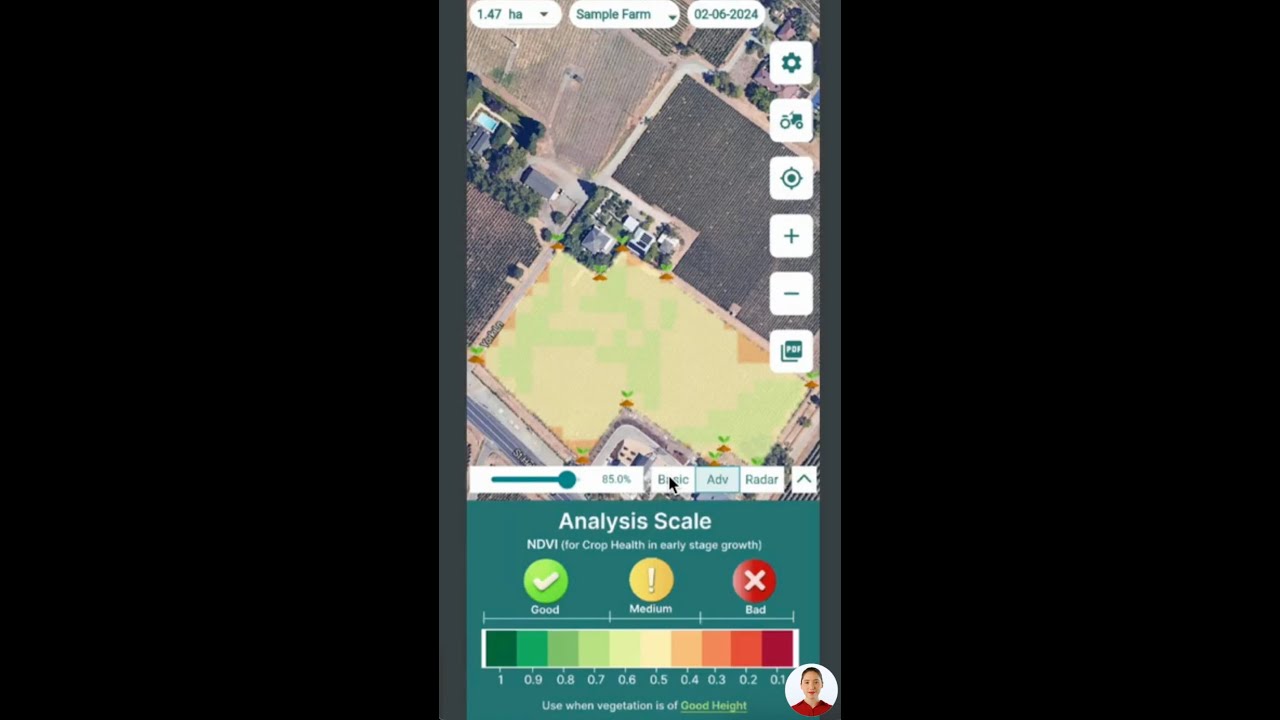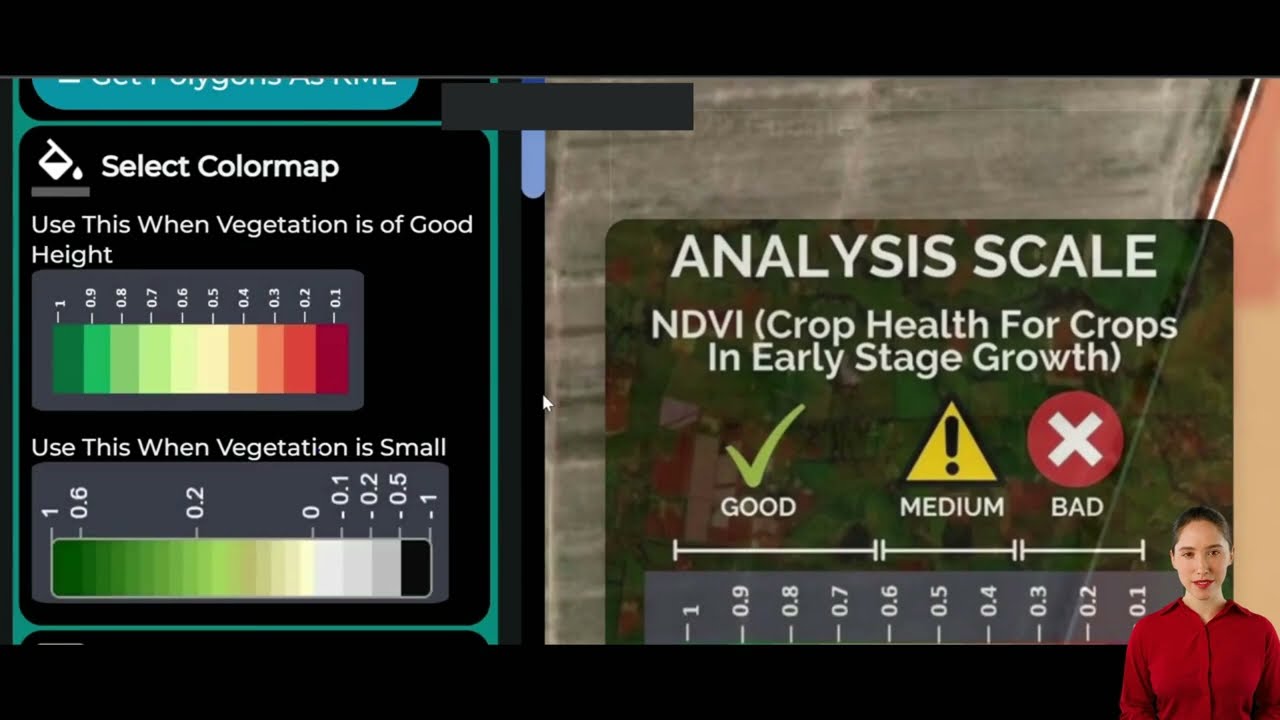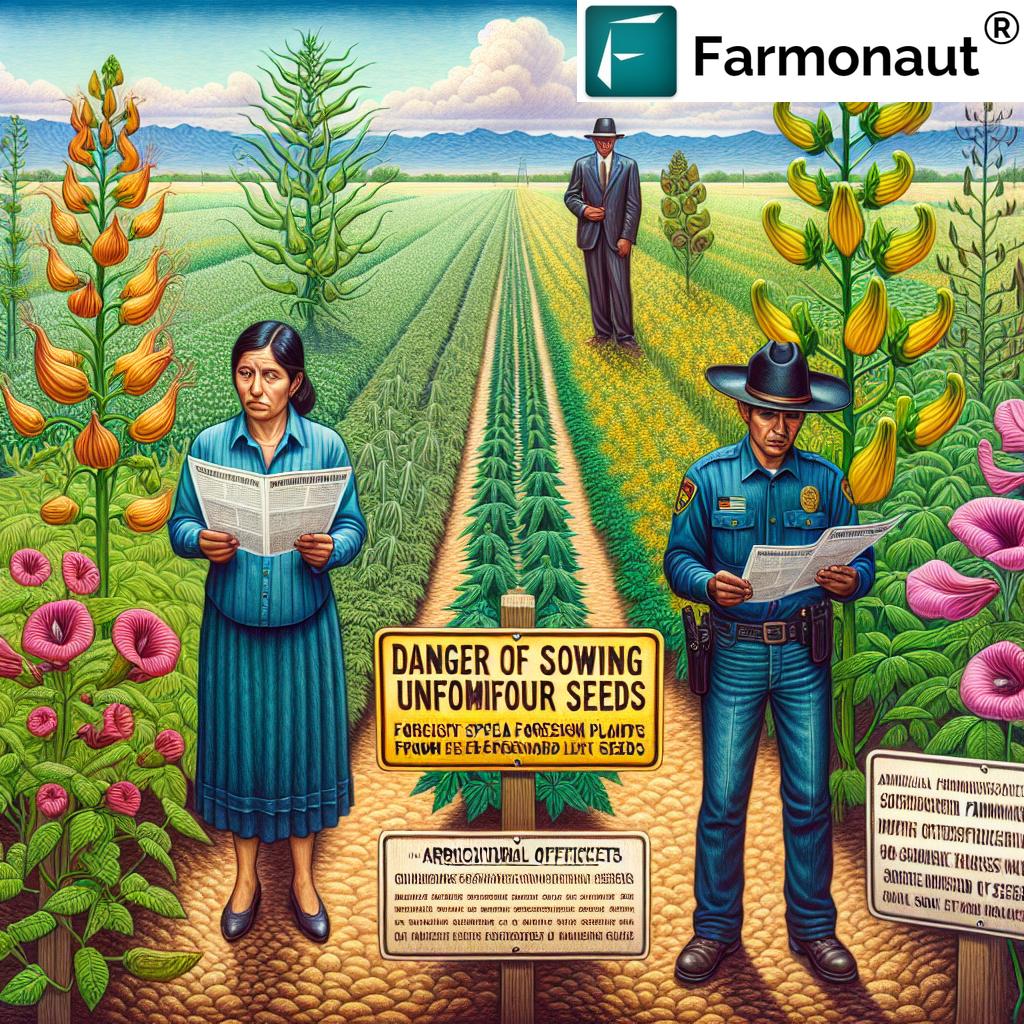New Mexico and Texas Warn of Invasive Foreign Seeds: How to Manage Biosecurity Threats, Report Unidentified Shipments, and Defend Local Agriculture
“Over 400 unsolicited foreign seed shipments were reported in Texas and New Mexico, threatening local ecosystems and agriculture.”
Unsolicited Seed Shipments Arrive in the Southwest: A Biosecurity Wake-Up Call
In early 2025, a surge of unsolicited seed shipments—packages containing unidentified seeds—arrived at homes and businesses across New Mexico and Texas. While these mysterious deliveries might seem harmless or even intriguing at face value, they present significant agricultural biosecurity threats and environmental risks for our region. The New Mexico Department of Agriculture (NMDA) and the Texas Department of Agriculture (TDA) have both issued urgent warnings to highlight the severity of these incidents.
Our local ecosystems and agricultural sector are at risk from the introduction of foreign seeds in packages that may harbor invasive species, plant diseases, and pests harmful to native flora and crop production. As responsible stewards of the land, it is our collective duty to understand and manage these risks and to take proactive action, including reporting unidentified seeds and following the official guidelines for receiving seeds by mail.
In this comprehensive, actionable guide, we explore the full scope of this biosecurity issue—its potential consequences, what actions we must take, and how technology is reshaping prevention strategies to support a sustainable, thriving environment for New Mexico and Texas agriculture.
Potential Risks of Receiving Unidentified Seeds by Mail
The unsolicited seed shipments raise several immediate and long-term concerns, particularly around the risks of planting unknown seeds. When we receive unidentified seeds in mail, the impulse to plant or discard them without a second thought can lead to severe consequences. Here’s why:
- Invasive Species Risks: Non-native or invasive plants from foreign sources can disrupt local ecosystems, outcompete native vegetation, and alter habitats for wildlife.
- Spread of Plant Diseases and Pests: Seeds can be carriers for fungal pathogens, bacterial blights, viruses, or insect pests that threaten crops and livestock. Invasive species can introduce novel threats with no natural predators.
- Economic Impact: Invasive species can lead to reduced crop yields, lost grazing lands, and increased management costs. The total economic losses from invasive species in the United States exceed $120 billion annually.
- Legal Issues: Receiving or planting unauthorized seeds may violate state and federal law regarding the import of restricted plant materials.
- Biosecurity Gaps: Such shipments undermine regulatory controls placed to maintain agricultural biosecurity, posing risks that may be impossible to reverse once new species have established themselves.
We must all remain vigilant and take the environmental impact of invasive plants seriously. Any misstep in handling these packages could have ripple effects for the health of local communities, ecosystems, and the foundation of agricultural production in New Mexico and Texas.
Historical Context: Unsolicited Seed Incidents in the United States
This is not an isolated phenomenon. In 2020, widespread reports surfaced of unsolicited seed packages labeled as jewelry arriving from China at locations throughout the United States, including Texas. The U.S. Department of Agriculture’s Animal and Plant Health Inspection Service (APHIS) and state agricultural departments urged recipients not to plant the seeds, echoing the concerns voiced today.
- Hundreds of these shipments bypassed normal regulatory checks, exposing gaps in global trade and postal monitoring.
- At the time, biosecurity experts reported that such practices could set the stage for the next major agricultural challenge.
- This historical context underscores the importance of rapid response, coordinated reporting, and public awareness in addressing biosecurity threats from international seed shipments.
Today’s warnings from the NMDA and TDA are part of a broader effort to apply these hard-won lessons and enhance our region’s ability to defend against environmental and agricultural threats.
Why Agricultural Biosecurity Threats Demand Our Attention
Biosecurity involves proactive protection of agriculture and the environment from potentially harmful species, diseases, pests, and materials—in this case, unidentified seeds in mail. For regions like Texas and New Mexico, agricultural biosecurity is especially vital, given our diverse climates, extensive farming operations, and proximity to international borders.
- Food Security: At stake is our region’s ability to provide stable, abundant crops for food and economic wellbeing.
- Environmental Preservation: Invasive plants can eradicate native flora and disrupt the intricate balance of local ecosystems.
- Compliance and Law: Unauthorized seed introductions violate both state and federal regulations, potentially undermining years of public and private investment in agricultural protection.
- Public Health: Certain invasive species may trigger allergies, harbor toxins, or act as secondary hosts to animal and human diseases, raising additional concerns.
In essence, managing and reporting on unsolicited seed shipments is a critical civic responsibility.
Guidelines for Receiving Seeds by Mail: Protecting Local Agriculture from Threats
Authorities in both New Mexico and Texas have provided clear, practical instructions for individuals who receive unsolicited seed packages:
- Do Not Plant the Seeds
Planting unknown seeds risks the spread of invasive species, pests, and diseases. - Preserve All Materials
Keep the seeds, all packaging, shipping labels, and contents intact. Seal in a plastic bag if possible. - Document the Package
Take photographs of both the seeds and packaging—this is crucial for authorities to assess the risk and begin identification. - Report the Incident Immediately
New Mexico:- Email: [email protected]
- Phone: 575-646-1551
Texas:
- Texas Department of Agriculture (TDA): 1-800-825-5832
You can also report packages to the USDA-APHIS.
These recommended actions are our first line of defense in protecting local agriculture from threats associated with unauthorized seed imports.
“Invasive species cost the U.S. over $120 billion annually, highlighting the urgent need for seed biosecurity in border states.”
Comparison Table of Common Invasive Seed Species Reported in Texas and New Mexico
To support rapid recognition and provide detailed, actionable information, here is a structured comparison of major invasive seed types recently identified in our region. Understanding these specifics is vital for farmers, landowners, and authorities to prioritize reporting and management efforts:
| Seed Type (Common/Scientific Name) | Estimated Frequency (per month) |
Potential Impact on Local Agriculture | Native Region | Recommended Action |
|---|---|---|---|---|
| Siberian Elm (Ulmus pumila) | 20-35 | Crop Loss Risk: High; Outcompetes native trees, alters soil | East Asia | Report & Destroy |
| Cogongrass (Imperata cylindrica) | 10-15 | Crop Loss Risk: High; Reduces grazing, fire hazard | Southeast Asia | Report Immediately |
| Giant Hogweed (Heracleum mantegazzianum) | 2-5 | Medium; Toxic to humans/livestock; Displacing crops | Central Asia | Isolate & Report |
| Water Hyacinth (Eichhornia crassipes) | 5-7 | High; Clogs waterways, threatens irrigation | South America | Destroy & Report |
| Chinese Tallow (Triadica sebifera) | 8-12 | Medium; Alters wetlands, displaces native flora | China/East Asia | Report to TDA/NMDA |
| Bermuda Buttercup (Oxalis pes-caprae) | 12-18 | Medium; Reduces crop yield, aggressive spread | Southern Africa | Isolate & Report |
The Environmental Impact of Invasive Plants & Planting Unknown Seeds
The environmental impact of invasive plants resulting from planting unknown seeds is profound and far-reaching. When unidentified seeds are introduced—intentionally or inadvertently—into new environments, they can:
- Outcompete Native Flora: Some invasive species grow faster than local plants, using up sunlight, water, and nutrients.
- Degrade Soils: Certain invaders change soil chemistry or promote erosion, leading to environmental degradation.
- Disrupt Ecosystems: Invasive plants damage habitats, reducing biodiversity, and endangering pollinators and other vital species.
- Increase Risks of Fire/Flood: Fast-growing, flammable, or dense species can intensify fire risks or block waterways, causing additional threats.
The arrival and introduction of non-native species is not just an agricultural issue but a comprehensive environmental challenge for our states.
Farmonaut API: Satellite-Based Data & Biosecurity Insights for Professionals
For agribusinesses, researchers, and government agencies, Farmonaut offers a powerful API (access the API here) to integrate real-time, scalable crop health, and weather data into internal biosecurity monitoring systems. See Farmonaut’s API Developer Docs for technical details and sample integrations.
How Technology Empowers Biosecurity: Farmonaut’s Role in Modern Agriculture
Responding to the escalating threats posed by unsolicited seed shipments and invasive species, we must harness technology to enhance monitoring, prevention, and reporting. Farmonaut is at the forefront of this mission—making precision agriculture accessible, affordable, and actionable for New Mexico, Texas, and beyond. Here’s how:
- Satellite-Based Crop Health Monitoring: Farmonaut deploys multispectral satellite imagery to scan and monitor vast agricultural areas for signs of plant stress, disease, or sudden vegetation changes—essential for early detection of invasive outbreaks.
- AI-Driven Farm Advisory (Jeevn AI): Personalized, AI-based crop health and pest advisory supports real-time management against emerging threats. Farmers and agencies benefit from weather forecasts, disease alerts, and best practice advice to address issues proactively.
- Blockchain-Based Traceability: Ensures agricultural supply chains are transparent and verifiable, offering end-to-end traceability from farm to consumer. Helps authorities swiftly identify contamination sources or illegal introductions.
- Fleet & Resource Management: For agribusinesses and agencies, Farmonaut provides efficient fleet and machinery management. Allows rapid deployment of inspection teams or coordinated response to outbreaks.
- Carbon Footprinting: Farmonaut’s carbon footprinting features measure and help minimize environmental impact, supporting sustainable agriculture and land management.
- Financial Access: With satellite-based crop loan and insurance verification, Farmonaut reduces fraud and helps farmers recover from biosecurity-related losses.
Together, by using platforms like Farmonaut, we empower farmers, officials, and businesses to act fast—and smart—in defending the integrity of our land and livelihoods.
How Authorities Respond to Unsolicited Seed Shipments and Invasive Risks
Both TDA and NMDA are supported by federal agencies like APHIS to bolster public awareness, surveillance, and enforcement. Their multi-pronged response includes:
- Issuing public warnings to ensure residents remain alert and do not plant seeds from unknown sources.
- Collecting and analyzing packages for identification of invasive species or plant diseases.
- Providing reporting hotlines and email contacts for swift action.
- Strengthening partnerships with customs and postal services to intercept harmful materials before they reach communities.
- Educating the public on guidelines for receiving seeds by mail and best practices in reporting.
Our cooperation with these authorities is crucial in reducing the risks associated with unidentified seeds in mail.
Protecting Local Agriculture from Threats: Steps We All Must Take
Here’s a quick checklist for both individuals and organizations to help us safeguard our agriculture and environment:
- Stay Informed: Subscribe to updates from the NMDA, TDA, and USDA-APHIS. Register for urgent agriculture and biosecurity alerts.
- Don’t Plant Unverified Seeds: Whether the package is labeled as coming from Texas, China, or anywhere else—always err on the side of caution.
- Help Educate Others: Spread awareness in your community about the risks of planting unknown seeds and the appropriate response steps.
- Embrace Technology: Use remote sensing and advisory platforms like Farmonaut to identify, report, and monitor environmental threats in real time.
- Promote Regulatory Compliance: Support efforts to strengthen laws regulating the import and handling of plant materials and foreign seeds in packages.
- Lead by Example: Follow all reporting guidelines and consult with local extension or agricultural authorities if in doubt.
Frequently Asked Questions: Invasive Foreign Seeds, Biosecurity, and Reporting Processes
1. What should I do if I receive a package containing unknown seeds?
Do not open or plant the seeds. Keep all packaging intact, take photos, and contact your local agricultural authority ([email protected] for NM; 1-800-825-5832 for Texas). Follow all recommended guidelines for receiving seeds by mail.
2. Why are these unsolicited seed shipments dangerous?
They can introduce invasive species, plant diseases, or pests, which may threaten local agriculture, disrupt ecosystems, and cause substantial economic losses.
3. How do I identify if a seed is invasive or harmful?
Many invasive species look similar to harmless plants. Detailed identification should be left to the experts. Report and do not handle unverified seeds.
4. Can I use Farmonaut to monitor or report unusual vegetation patterns?
Yes, Farmonaut’s satellite monitoring platform is ideal for identifying unexplained plant growth or vegetation anomalies across farm, ranch, or managed land.
5. What legal actions do authorities take for unauthorized seed shipments?
State and federal authorities may confiscate and destroy seeds and launch investigations to trace the origin and assess violations of import/export laws.
6. How does reporting unidentified seeds help?
Prompt reporting enables agricultural departments to quarantine and contain new threats before they spread, protecting our wider agricultural environment.
Conclusion: Uniting to Safeguard Our Agricultural Future
The unsolicited seed shipments reported across New Mexico and Texas are a sobering reminder that our agricultural and environmental defense is only as strong as our vigilance and community cooperation. By following state and federal guidelines, embracing new technology, and maintaining strong communication with authorities, we protect the land, livelihoods, and natural heritage of our states.
We urge everyone—farmers, families, agribusinesses, and policymakers—to treat the introduction of foreign seeds in packages with the seriousness it deserves. Report, preserve, and never plant unknown seeds. Our collective future depends on our response today.






















